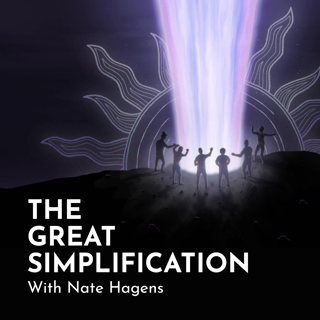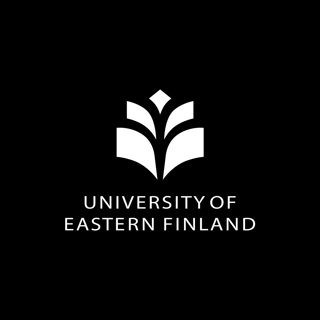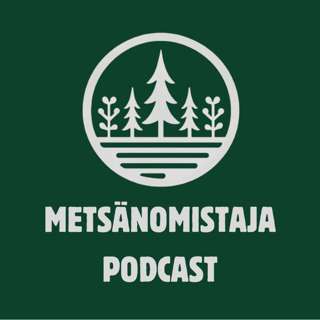
AI’s Unseen Risks: How Artificial Intelligence Could Harm Future Generations with Zak Stein
While most industries are embracing artificial intelligence, citing profit and efficiency, the tech industry is pushing AI into education under the guise of ‘inevitability’. But the focus on its potential benefits for academia eclipses the pressing (and often invisible) risks that AI poses to children – including the decline of critical thinking, the inability to connect with other humans, and even addiction. With the use of AI becoming more ubiquitous by the day, we must ask ourselves: can our education systems adequately protect children from the potential harms of AI? In this episode, Nate is joined once again by philosopher of education Zak Stein to delve into the far-reaching implications of technology – especially artificial intelligence – on the future of education. Together, they examine the risks of over-reliance on AI for the development of young minds, as well as the broader impact on society and some of the biggest existential risks. Zak explores the ethical challenges of adopting AI into educational systems, emphasizing the enduring value of traditional skills and the need for a balanced approach to integrating technology with human values (not just the values of tech companies). What steps are available to us today – from interface design to regulation of access – to limit the negative effects of Artificial Intelligence on children? How can parents and educators keep alive the pillars of independent thinking and foundational learning as AI threatens them? Ultimately, is there a world where Artificial Intelligence could become a tool to amplify human connection and socialization – or might it replace them entirely? (Conversation recorded on May 12th, 2025) About Zak Stein: Dr. Zak Stein is a philosopher of education, as well as a Co-founder of the Center for World Philosophy and Religion. He is also the Co-founder of Civilization Research Institute, the Consilience Project, and Lectica, Inc. He is the author of dozens of published papers and two books, including Education in a Time Between Worlds. Zak recieved his EdD from Harvard University. Show Notes and More Watch this video episode on YouTube Want to learn the broad overview of The Great Simplification in 30 minutes? Watch our Animated Movie. --- Support The Institute for the Study of Energy and Our Future Join our Substack newsletter Join our Discord channel and connect with other listeners
4 Kesä 1h 49min

Why the World Feels Like It’s Falling Apart: The Superorganism Explained in 7 Minutes | Frankly 97
In a world grappling with converging crises, we often look outward – for new tech, new markets, new distractions. But the deeper issue lies within: our relationship with energy, nature, and each other. What if we step back far enough to see human civilization itself as an organism that is growing without a plan? In this week’s Frankly — adapted from a recent TED talk like presentation (called Ignite) — Nate outlines how humanity is part of a global economic superorganism, driven by abundant energy and the emergent properties of billions of humans working towards the same goal. Rather than focusing on surface-level solutions, Nate invites us to confront the underlying dynamics of consumption and profit. It’s a perspective that defies soundbite culture — requiring not a slogan, but a deeper reckoning with how the world actually works. These are not quick-fix questions, but the kinds that demand slow thinking in a world hooked on speed. What if infinite growth on a finite planet isn't just unrealistic – but the root of our unfolding crisis? In a system designed for more, how do we begin to value enough? And at this civilizational crossroads, what will you choose to nurture: power, or life? (Recorded May 26, 2025) Show Notes and More Watch this video episode on YouTube Want to learn the broad overview of The Great Simplification in 30 minutes? Watch our Animated Movie. --- Support The Institute for the Study of Energy and Our Future Join our Substack newsletter Join our Discord channel and connect with other listeners
30 Touko 14min

The Fish are Fleeing: How Shifting Marine Ecosystems are Upending Life with Malin Pinsky
For all of human history, the oceans and the life within them have remained a stable and fundamental part of Earth as we know it. Yet, for the past few decades, fisheries and scientists alike have observed massive migrations in marine ecosystems unlike anything we’ve ever witnessed. What is driving these unprecedented movements, and how are they rippling out to affect every aspect of life In this conversation, Nate is joined by marine ecologist Malin Pinsky, whose decades of research shed light on the dramatic migrations of marine species due to rising ocean temperatures. Malin breaks down the science behind these changes – from declining oxygen levels pushing fish toward the poles, to the cascading impacts on intricate marine food webs, as well as the growing threat of localized extinctions among key fishery species. How has a cultural disconnect from the importance of biodiversity and the interdependence of life led to such a drastic impact on the function of our oceans? What do these changes mean for humanity, including impacts on global food security and geopolitical stability? Finally, could reconnecting with the ocean’s abundant, diverse ecosystems help us reduce our impact on these deep, blue pillars of life? (Conversation recorded on April 22nd, 2025) More TGS Ocean Episodes About Malin Pinsky: Malin Pinsky is an Associate Professor in the Department of Ecology & Evolutionary Biology at the University of California Santa Cruz with expertise in the adaptation of ocean life to climate change and applications to ocean conservation and fisheries. His more than 120 publications have appeared in Science, Nature, and other journals. He is a Fellow of the American Association for the Advancement of Science, an Earth Leadership Fellow, and an Early Career Fellow of the Ecological Society of America. Pinsky serves on advisory boards for the Beijer Institute of the Royal Swedish Academy of Sciences, the non-profit Oceana, and the Chewonki Foundation. He grew up exploring tidepools and mountains in Maine. Show Notes and More Watch this video episode on YouTube Want to learn the broad overview of The Great Simplification in 30 minutes? Watch our Animated Movie. --- Support The Institute for the Study of Energy and Our Future Join our Substack newsletter Join our Discord channel and connect with other listeners
28 Touko 1h 5min

The 8 Faces of AI: Who Will You Become As AI Accelerates? | Frankly 96
In a world increasingly mediated by machines, the boundaries between human identity and artificial intelligence are beginning to blur. While some embrace the tools of the future, others quietly resist, preserving ways of being that have endured for millennia. What happens when AI becomes not just a tool but a mirror? In this week’s Frankly, Nate introduces a new typology of how AI may shape human behavior in the years ahead. He outlines eight archetypes reflecting our varied relationships to artificial intelligence—ranging from resistance and discipline to dependence and immersion. Rather than focusing on technological capability, he explores what these categories reveal about human psychology, culture, and adaptation. Which of these types do you see in yourself and those around you? What will it take to retain our analog roots in a digital age? And in a world increasingly shaped by algorithms, what kind of human will you choose to be? (Recorded May 20, 2025) Show Notes and More Watch this video episode on YouTube Help shape the future of TGS by taking our 10-minute Learning & Training Survey --- Want to learn the broad overview of The Great Simplification in 30 minutes? Watch our Animated Movie. Support The Institute for the Study of Energy and Our Future Join our Substack newsletter Join our Discord channel and connect with other listeners
23 Touko 13min

Restoring Global Ecology: The Great Green Wall and Large-Scale Permaculture in Action with Andrew Millison
It’s no secret that massive change is needed to restore our planet’s vital ecosystems. Permaculture offers practices to restore local environments by focusing on creating sustainable agricultural systems that mimic patterns found in nature. But how might permaculture initiatives go beyond agriculture to transform some of our largest-scale problems, such as social cohesion, climate stabilization, and even human migration? In this conversation, Nate sits down with permaculture educator Andrew Millison to discuss the Great Green Wall project, a massive ecological initiative aimed at combating desertification in the Sahel region of Africa. They explore the causes of the Sahara Desert's expansion, the simple but impactful permaculture techniques being employed to restore land, and the significant ecological and nutritional benefits resulting from these efforts. This conversation highlights the collaboration between local communities and global organizations, emphasizing permaculture’s potential to transform lives and ecosystems around the world. How can innovative permaculture techniques aid in helping our most complex ecological challenges? In what ways have land restoration projects reduced conflict between people in resource scarce areas? Furthermore, what kinds of responses – both grassroots and top-down – are needed to implement these practices on a large scale? About Andrew Millison: Andrew Millison is an innovative educator, storyteller and designer. He founded the Permaculture Design education program at Oregon State University (OSU) in 2009. At OSU Andrew serves as an Education Director and Senior Instructor who offers over 25 years of experience, and a playful approach to regenerative design. Andrew is also a documentary videographer who travels the world documenting epic permaculture projects in places such as India, Egypt, Mexico, Cuba, and throughout the US. You can view his videos and series on his YouTube channel. Show Notes and More Watch this video episode on YouTube Want to learn the broad overview of The Great Simplification in 30 minutes? Watch our Animated Movie. --- Support The Institute for the Study of Energy and Our Future Join our Substack newsletter Join our Discord channel and connect with other listeners
21 Touko 1h 3min

The Parent and the Pendulum | Frankly 95
In a culture driven by achievement, autonomy, and digital distraction, our sense of identity is often shaped by performance and external validation. Yet beneath this surface, many carry unseen psychological imprints from childhood and culture alike. What happens when we begin to examine these layers and imagine healthier ones? In this week’s Frankly, Nate explores the themes of attention, awareness, and the psychological impacts of modern life. Through poetry and reflection, he examines the pull toward validation and control that shapes many of our behaviors. Building on the Ideal Parent Figure Protocol developed by Dr. Daniel P. Brown, he expands the concept to explore what ideal cultural and ecological figures might offer in addressing our deeper collective needs. What are the qualities of a healthy culture -- one rooted in belonging, continuity, and shared purpose? How can we reconnect with ecological kinship and wisdom? And finally, where is your branch of stillness, the one place the pendulum of this world doesn't reach? (Recorded May 12, 2025) Show Notes and More Watch this video episode on YouTube Want to learn the broad overview of The Great Simplification in 30 minutes? Watch our Animated Movie. --- Support The Institute for the Study of Energy and Our Future Join our Substack newsletter Join our Discord channel and connect with other listeners
16 Touko 14min

No Economies Without Biodiversity: Why Our Markets Rely on the Complexity of Nature with Thomas Crowther
There is only one known planet in the universe capable of meeting humanity's needs – Earth. And yet, our understanding and appreciation of the underlying complexity that makes it function remains limited. If we were able to grasp the transformative potential of biodiversity – specifically how it relates to biocomplexity – how might we change our behavior? In this episode, Nate is joined by ecologist Thomas Crowther to discuss the critical importance of biodiversity as an intricate web of life that supports all other living beings, not just through the sheer number of species, but because of the complexity of interactions within ecosystems. Thomas highlights the power of data in empowering individuals to make informed choices that positively impact nature, and the critical need to address inequality in order to foster ecological recovery. Could the power of data and knowledge catalyze humanity into valuing biodiversity for the sake of preserving ecological stability? How do local communities and initiatives play a key role in revitalizing productive ecosystems, and how can we change our patterns of consumption to better support them? And perhaps most importantly, if we come to understand the critical interconnectedness of the biosphere, might we finally rediscover our place within it, as one species among millions fostering life on this Blue-Green Earth? (Conversation recorded on April 15th, 2025) About Thomas Crowther: Thomas Crowther is an ecologist studying the connections between biodiversity and climate change. He is chair of the advisory council for the United Nations Decade on Ecosystem Restoration, as well as the founder of Restor: an online, open-data platform for the global restoration movement. He was also a professor in the Department of Environmental Systems Science at ETH Zurich, where he started Crowther Lab, an interdisciplinary group of scientists exploring how global-scale ecological systems interact to regulate the climate. In 2021, the World Economic Forum named Thomas a Young Global Leader for his work on the protection and restoration of biodiversity. Show Notes and More Watch this video episode on YouTube Want to learn the broad overview of The Great Simplification in 30 minutes? Watch our Animated Movie. --- Support The Institute for the Study of Energy and Our Future Join our Substack newsletter Join our Discord channel and connect with other listeners
14 Touko 1h 11min

Social Overshoot? Dunbar’s Number, Real Relationships, and Musical Chairs | Frankly 94
With more people on the planet than ever before – with most having constant digital access to one another – there is an abundance of potential relationships available to us. Despite this, there is also an increasing loneliness crisis across global society. What can evolutionary psychology teach us about this lack of meaningful relationships at a time of hyper-connectivity? In this week’s Frankly, Nate reflects on the effects of technology on modern relationships, and how Dunbar’s number infers a ceiling on the number of people we can meaningfully interact with. He emphasizes the rare value of full attention in close relationships, and the implications of our current social dynamics as we face more turbulent times and a smaller world ahead. What are the negative effects of overextending our social networks and how does that shape the way we build community? How can we foster and strengthen connections with the people who are most important to us? Finally, what will our networks look like when the economic music speeds up or stops, and those who are closest to us become our most important support systems? (Recorded May 6, 2025) Show Notes and More Watch this video episode on YouTube Want to learn the broad overview of The Great Simplification in 30 minutes? Watch our Animated Movie. --- Support The Institute for the Study of Energy and Our Future Join our Substack newsletter Join our Discord channel and connect with other listeners
9 Touko 15min





















